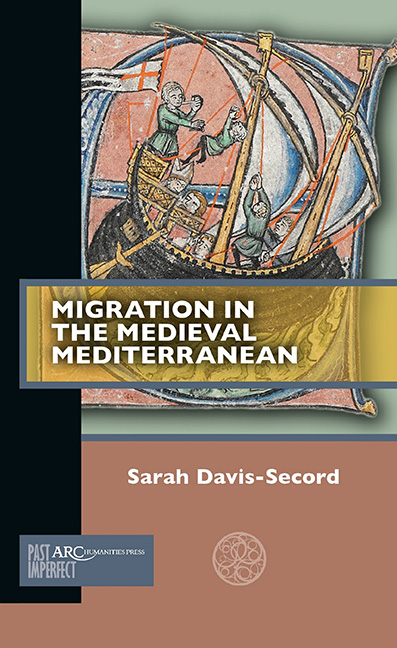Book contents
- Frontmatter
- Contents
- Introduction
- Chapter 1 Refugees from the Islamic Conquests
- Chapter 2 Hadrian and Theodore
- Chapter 3 St. Elias the Younger
- Chapter 4 Constantine the African
- Chapter 5 Jewish Refugees from the Norman Invasion
- Chapter 6 Merchants
- Chapter 7 Imam al-Mazari and Other Muslim Scholars
- Chapter 8 Unnamed Sicilian Girl
- Chapter 9 George of Antioch and Other Immigrants to Sicily
- Chapter 10 Moses Maimonides
- Chapter 11 Religious Converts
- Conclusion
- Further Reading
Chapter 1 - Refugees from the Islamic Conquests
Published online by Cambridge University Press: 13 January 2022
- Frontmatter
- Contents
- Introduction
- Chapter 1 Refugees from the Islamic Conquests
- Chapter 2 Hadrian and Theodore
- Chapter 3 St. Elias the Younger
- Chapter 4 Constantine the African
- Chapter 5 Jewish Refugees from the Norman Invasion
- Chapter 6 Merchants
- Chapter 7 Imam al-Mazari and Other Muslim Scholars
- Chapter 8 Unnamed Sicilian Girl
- Chapter 9 George of Antioch and Other Immigrants to Sicily
- Chapter 10 Moses Maimonides
- Chapter 11 Religious Converts
- Conclusion
- Further Reading
Summary
Many migration stories begin with war, destruction, and violence. In many cases throughout history, the violent effects of conquest and regime change have led to massive demographic upheavals and the death, enslavement, or forced relocation of many people. Raids, conquests, and wars also impact surviving populations who remain in place, often destroying their cities and homes, undermining their ways of life, and hindering their continued economic subsistence. To be sure, not every conquest throughout history has resulted in waves of out-migration—at least as far as our sources can demonstrate. And it is demonstrably true that many surviving people whose lands were conquered found ways to live peaceably under new authorities, either as religious and linguistic minorities or as cultural or religious converts. But a majority of the migration stories in this book start with regime change, conquest, or episodes of unendurable violence—even though many of the surviving texts do not themselves record the acts of violence that inspired the migration events themselves.
One of the most historically important conquests of the early Middle Ages was the Islamic takeover of the eastern and southern shores of the Mediterranean Sea, much of which took place during the seventh century. Muslim troops moved out of the Arabian peninsula and, within a decade of the Prophet Muhammad's death (in 632 CE), had captured important Christian-ruled cities such as Damascus and Jeru salem, along with their surrounding countryside. And while those cities had been conquered and re-conquered by the Byzantine Greek and Persian Sassanid Empires over preceding decades, the Muslim takeover is the one that would last throughout the Middle Ages. Those Arab-Muslim forces then moved in multiple directions, wresting all of northern Africa from Roman (Byzantine) control and all of Iraq and Iran from Persian domain.
Some seventh-century texts in Greek, Syriac, and Coptic record Christian reactions to the violence and population dislocations of the Islamic conquests. Patriarch Sophronius, for example, the leader of the Christian Church in Jerusalem, preached a Christmas sermon circa 634 during which he bemoaned the fear and destruction that Muslim raids were having on the people of the region. He claimed that the warfare made pilgrims unable to reach the city's holy sites and described the terror and grief that characterized their anticipation of further attacks. They were, he said, “bound by fear of the Saracens.
- Type
- Chapter
- Information
- Migration in the Medieval Mediterranean , pp. 15 - 20Publisher: Amsterdam University PressPrint publication year: 2021



